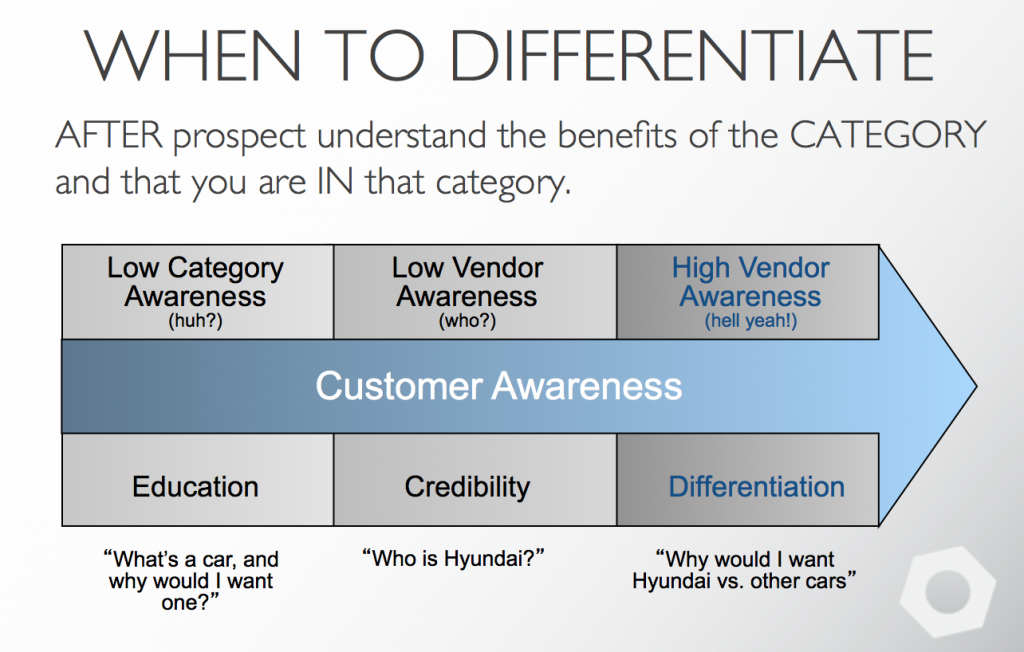See the Premature Differentiation Video
“This positioning isn’t differentiated!”
I’ve heard this complaint dozens of times. Software’s a competitive business, and we all want to claim that what our product does is unique or at least better. And yes, at some point in the sales process you need to be able to explain why the customer should buy your stuff instead of someone elses. But does that mean that your points of difference should always be the first things you mention?
Hell no!
When and how much you focus on differentiation depends on what customers already know – both about the category of product you’re selling, and about your company in particular.
Here’s one way to think about it. If people don’t know what you’re selling, you have to educate. If they know what you’re selling, but don’t know about you, you have to establish credibility. If they know the type of product you’re selling and they know you are a leader or strong contender in that category, then you need to differentiate early and often.
Imagine that you’re Henry Ford trying to sell a car a hundred years ago to somebody (me) who’s never seen one before. If you say, “Buy my automobile because it has the most efficient carbuerator”, there are only two possible responses:
- “What’s a carberator?”
- “What’s an automobile?”
By focusing prematurely on differentiation, you’ve completely lost the customer. That’s because I don’t yet know the benefits of automobiles or that you are a credible vendor of them.
But if you educate me that a car is like a horse carriage that goes faster and doesn’t emit horse poop, now I’m interested. In fact the term “Horseless Carriage” was a deliberate UN-differention to connect the new product with the market leader (the horse). You aren’t telling me how great you are, you’re telling me how great it is to have a car. By educating the market, you may be able to grow awareness of the category and your company at the same time. That’s what Siebel did when they educated the marketing about CRM software. That allowed them to move straight from education to leadership, establishing their own credibility en passant on the way.
But what do you do if you are entering a market that is already established? Stay tuned for Part 2.
